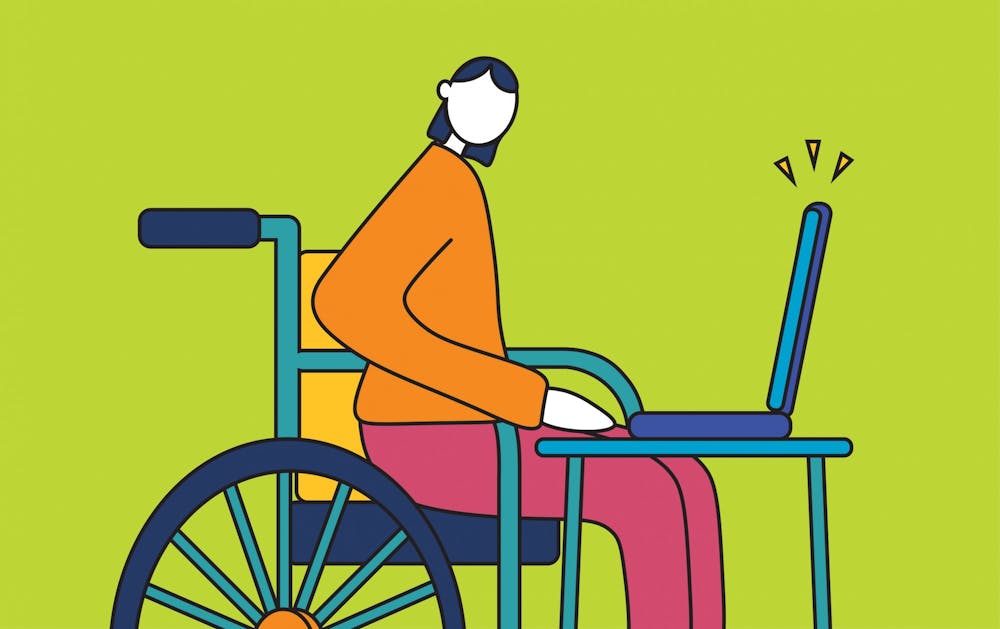When ASU transitioned to mostly remote operations this spring in response to COVID-19, SAILS, the Student Accessibility and Inclusive Learning Services, was no exception.
SAILS, formerly known as the Disability Resource Center, is a program at ASU dedicated to helping students with disabilities ensure that they are able to reach their full potential in a learning environment.
The program provides registered students with accommodations like note-taking services, interpreting and translation services and testing accommodations.
READ MORE: State Press Play: How the Disability Resource Center used student feedback to change its name
Despite having gone almost completely online, SAILS Director Chad Price said the program hasn’t changed and will continue to fulfill students’ accommodations through the pandemic.
“A lot of the things that we were doing prior to COVID were already kind of in the remote realm, and so we didn't really have to do a lot of changes,” Price said. “It was really working with our faculty to help them … with that transition and to help them understand how we're continuing to help them basically in the same way we were prior.”
Although teachers, staff and faculty members had already gotten a taste of what an online accommodation system would be like, Price said SAILS made sure that they were re-familiarized with its system through training on disabilities and how to work with people with disabilities.
"Those are a lot of the things that we did to ensure that faculty knew that those resources that had been there before were still available to them and that we were available for any questions that they may have along the way,” Price said.
Allison Ellsworth, an instructor at the College of Integrative Sciences and Arts, said she hasn't noticed any differences in working with SAILS during the pandemic.
When she has students registered with SAILS in her classes, she receives a notification from SAILS, then reviews the student's accommodations and works with them to make sure those accommodations are met.
“I have not personally perceived any difference in working with the staff and with SAILS. Now that we’re in (quarantine), there’s no difference on my end of things,” Ellsworth said.
Abigail Asay, a sophomore studying community health, said her experience as a student registered with SAILS during the pandemic hasn't been so consistent with what it was before COVID-19.
“I used to be able to take tests in a quiet room on my own … It's a bit different now since I’m in a Zoom call with my class now, and someone always forgets their microphone is on,” Asay wrote in an Instagram direct message. “It’s been difficult. I get migraines from looking at the screen so much. And it’s hard not to do the physical labs.”
Asay said although the transition to online learning has been hard, she has been provided some accommodations similar to those given in person. She said SAILS offered to talk to her teachers about her service dog, Winston, because many teachers think he still needs a physical license.
"They also gave me the accommodation of being able to talk to Winston during my proctored online exams since I do that when I’m stressed (and also since he needs to know he’s a good boy at all times)," Asay wrote.
Price said he recognizes that the process of accommodating needs won’t always be seamless. He said the biggest change for students seeking accommodations through SAILS this semester was accessing it remotely.
“I think any time that there's a change of any kind, there's always a transition, and people get accustomed to just that different environment,” Price said. “We really want to make sure that students are aware of our services. I think the biggest challenge sometimes for students, they don't always know where to look, or what to look for.“
Reach the reporter at amvald11@asu.edu and follow @anxieteandbread on Twitter.
Like The State Press on Facebook and follow @statepress on Twitter.

Analisa Valdez is a reporter with the Echo, focusing on covering the arts and entertainment world. Analisa has been apart of the State Press for two and a half years and is in her third year at the Walter Cronkite School of Journalism and Mass Communication.




